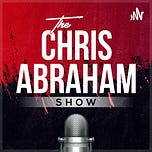Let’s talk about the kind of division that rarely gets discussed—not the old racism built on skin tone, but something more current and pervasive: cultural apartheid. It’s not race-based in the old-fashioned way. It’s not purely class. It’s not linguistic snobbery either. It’s cultural—and it’s chosen.
Growing up in Hawaii, the line wasn't drawn by color as much as by behavior. Nobody cared if you were white, brown, Asian, or Black if you knew how to act right. But if you acted "white"—uptight, arrogant, overly formal—you got roasted. Asian and Pacific Islander kids who spoke like they were from the mainland or who got into elite schools were called "Twinkies." Black kids were called "Oreos." It wasn’t about skin. It was about code.
That’s cultural apartheid: when identity is policed not by melanin but by perceived assimilation or deviation from the dominant cultural group—whether that group is minority or majority.
Today, people call Supreme Court Justice Clarence Thomas the "Black face of white supremacy"—not because of his DNA, but because of his politics, his diction, and his refusal to perform the expected cultural role. The punishment isn’t for being Black—it’s for being “off-code.”
What we're seeing isn’t oppression from above. It’s opt-in apartheid—community-enforced boundaries that demand loyalty to a cultural group or else.
This isn’t just about race or class. It’s about language, dress, affect, and even aspiration. In Idiocracy, when the time traveler speaks articulately, he gets mocked for sounding gay. The joke isn't about sexuality—it’s about sounding too polished for the crowd. That’s cultural deviance.
We’ve replaced external oppression with internal enforcement.
This isn't just about working-class kids. In cities like Atlanta, Oakland, Brentwood, the DC suburbs, and the tri-state area, some of the most affluent Black communities—Bougie, educated, well-resourced—still carry cultural divisions. These aren't economic ghettos. These are cultural ecosystems. And in some cases, they reinforce cultural separation rather than dissolving it.
Take the Boulé—Black elites who operate in high society, often speaking in transatlantic English, navigating elite institutions with fluency. They are often seen as “less Black” by cultural nationalists not because of wealth or politics, but because they code-switch or never “code” at all into the expected cultural norms.
This isn't cultural racism. It’s cultural apartheid.
Back in the '90s, we talked about Ebonics—a controversial but revealing attempt to codify cultural speech and resist linguistic assimilation. That conversation wasn’t just about education. It was about identity and loyalty—about resisting the pull of the so-called master’s tongue.
But here’s the cost: when speech becomes a badge, it becomes a prison. When ambition becomes “acting white,” when etiquette becomes betrayal, when eloquence is met with side-eye, the doors don’t close from the outside. We close them ourselves.
I know because my mother raised me to be fluent in both worlds. At home, I spoke Manhattan English. She fed me NPR, PBS, etiquette books, poetry, atlases. Outside, she let me run wild with pidgin, slippahs, Rap Reiplinger. I could speak fluid local by the time I was a teen. But she made sure I knew how to switch back.
That wasn’t betrayal. It was preparation. It was a survival skill. And in today’s world, it’s treated like treason.
Meanwhile, in supremacist spaces I’ve wandered through online, even my precise English isn’t enough. Irish? Hungarian? Catholic? That blood isn’t pure. Doesn’t matter how I speak. I’m still untermench to them.
So you see, this isn’t about race, language, or class alone. It’s about culture—and who gets to own it, define it, gatekeep it.
Let’s be clear: there’s nothing wrong with cultural pride. But when it becomes an opt-in apartheid, when it starts to punish success, ambition, assimilation, or even basic competence—it stops being pride. It starts being a cage.
And here’s where it gets more insidious—because cultural apartheid is only one part of a broader design. What we’re watching unfold across America isn’t just social division—it’s a program of opt-in control. Call it eugenics with a smile. If “the man” can convince you to self-select out of success, reproduction, and mobility, he doesn’t need to suppress you. You’ll do it for him.
Think about it:
Convince communities that striving for excellence is a betrayal.
Frame ambition as assimilation.
Push narratives that valorize grievance over growth.
Celebrate cultural insularity and shame code-switching.
Then: incentivize dependence. Make it easier to live on the dole than to start a business. Penalize families for staying together. Discourage marriage. Elevate the value of abortion and childlessness while mocking those who build households. Celebrate isolation, delay, and sterilization—literally and metaphorically.
This isn’t conspiracy. It’s social engineering in plain sight. And it’s not done with clubs and chains—it’s done with memes and moral narratives.
We’ve gone from forced segregation to self-imposed separation. From externally mandated sterility to culturally celebrated barrenness. From being told we can’t succeed, to proudly declaring we won’t even try.
This isn’t just cultural apartheid.
It’s opt-in apartheid, wrapped in identity pride and served up as justice.
Let’s call it what it is—and refuse to participate.
tl;dr
The provided text introduces the concept of "opt-in apartheid," arguing that societal divisions are increasingly based on chosen cultural affiliation rather than traditional markers like race or class. The author contends that communities often self-impose boundaries, demanding loyalty to specific cultural norms and penalizing those who deviate through their language, aspirations, or behavior, even within affluent groups. This phenomenon is distinct from historical oppression, as it involves internal enforcement and self-selection out of broader societal engagement, sometimes framed as cultural pride. The author suggests this constitutes a form of social engineering where individuals are subtly encouraged to limit their own success, reproduction, and mobility. Ultimately, the text defines this as "cultural apartheid" wrapped in notions of identity and justice, warning against its insidious nature.













Share this post